Improving health, improving lives.
HOPE Cape Town provides holistic health care that aims to raise the quality of life of people, with an emphasis on children and their families in situations of poverty, HIV, neurodiversity and related illnesses.
Adversity has been shown to negatively impact the holistic development of individuals exposed to it. Most of the effects of adversity on mental and physical health and development is intergenerational but early intervention can positively impact the outcomes.
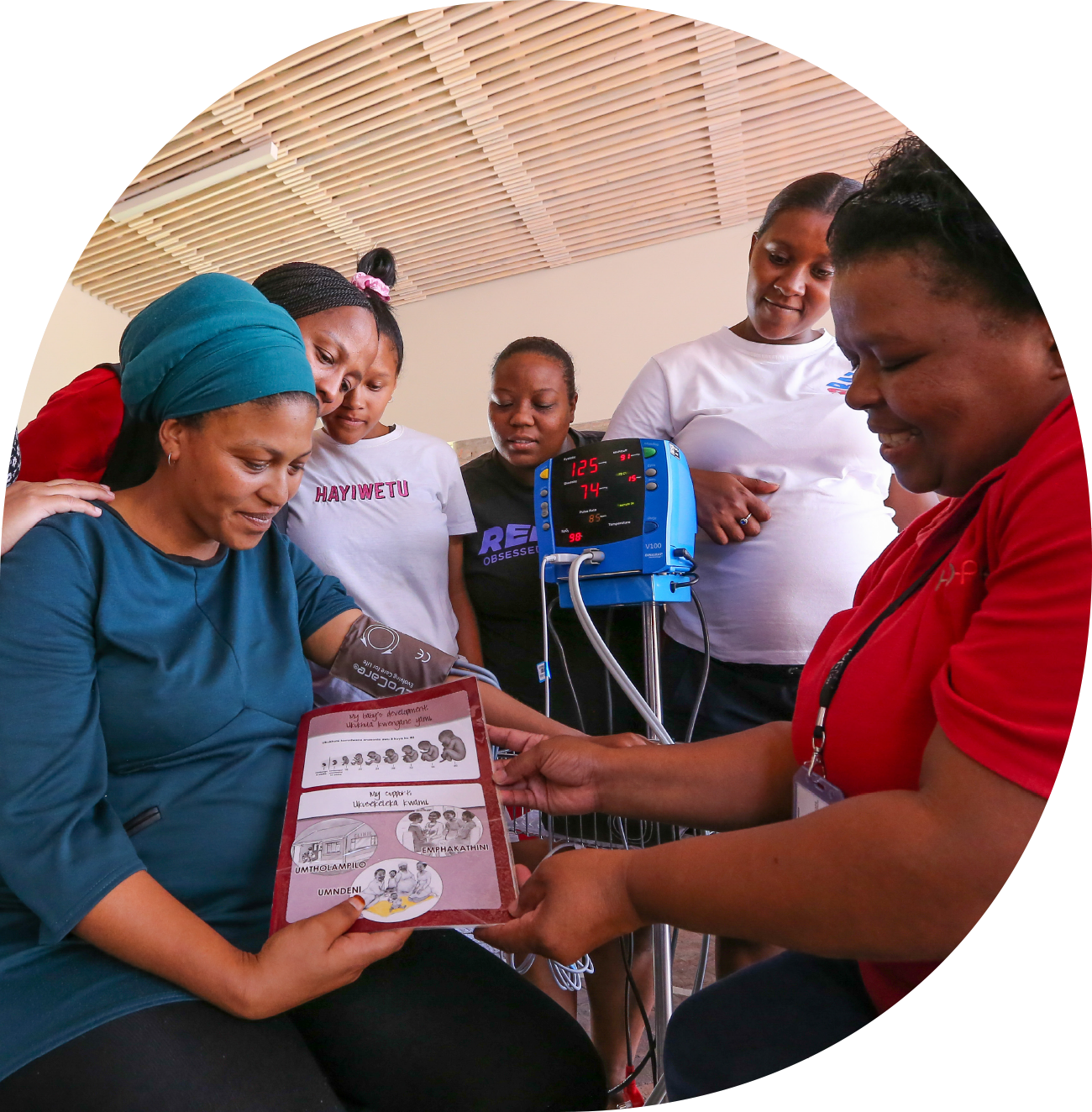
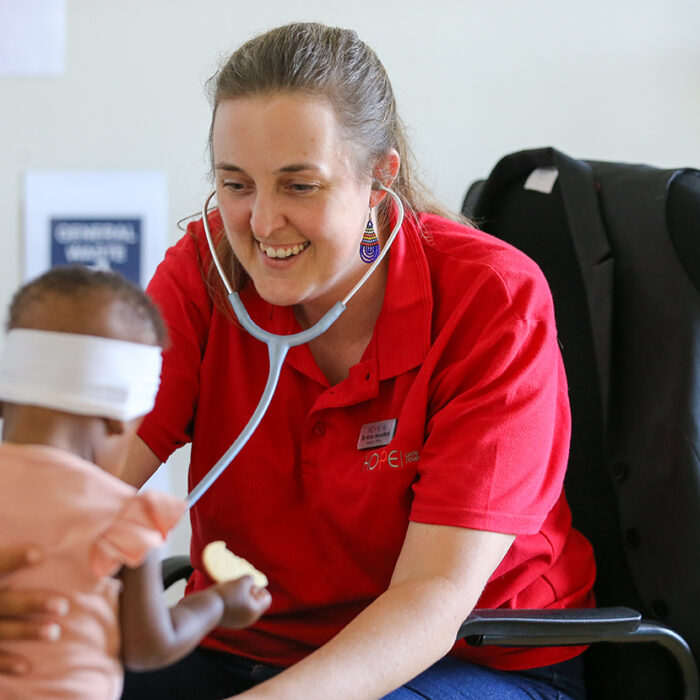
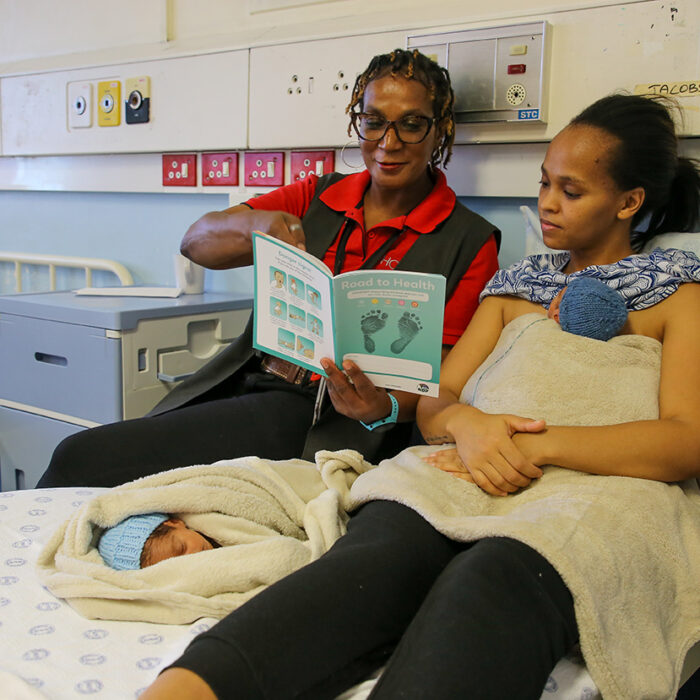
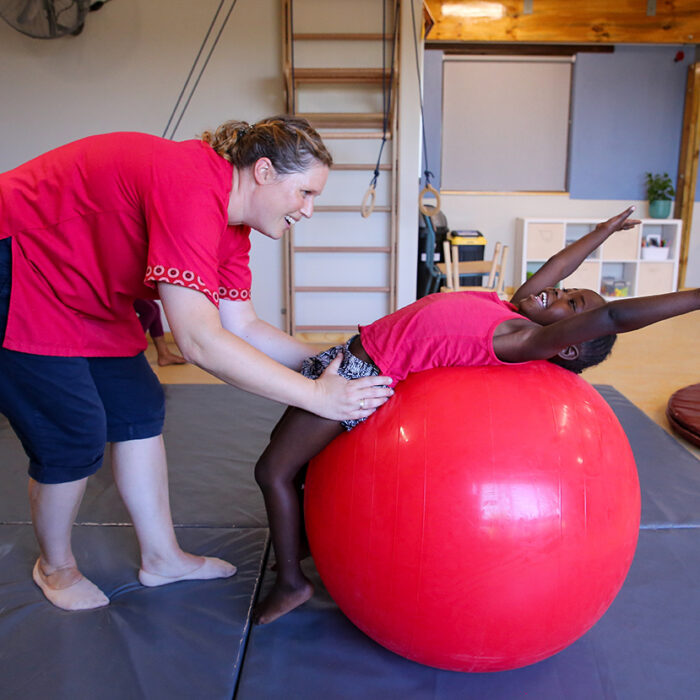
The Cycle of HOPE aims to improve health and life prospects by focusing on the holistic support of the mother and child, youth and family in order to help bring about intergenerational transmission of resilience, wellness and HOPE!
The Cycle of HOPE programme is ensconced in the HOPE Cape Town programmes based at Delft Community Health Centre, the Holistic Health Centre at The Nex – Indawo Yethu in Delft, Tygerberg Paediatric Hospital (formerly HOPE for Babies and HOPE to Home programmes) and, in part, the services provided by the HCHWs at various public health facilities.
Vertical transmission of HIV between mother to child is the most common way infants contract the virus and may happen during pregnancy, birth or breastfeeding. HOPE Cape Town conducts a project in collaboration with Tygerberg Hospital which aims to support the pregnant women who come to Tygerberg Hospital for obstetric care. Through counselling and psychosocial support, the project aims to help HIV negative women avoid infection and help HIV positive women adhere to medication and prevent transmission to their unborn babies and their newborn infants.
An effective Vertical Transmission Prevention (VTP) programme requires mothers and their babies to:
The Cycle of HOPE programme supports mothers in the Tygerberg Hospital First 1 000 Days Campaign project within the antenatal period (conception to delivery) and the first 2 years of life. It aims to help children and their caregivers in making the transition between care at Tygerberg Hospital and continued care at their local clinic; as well as the transition from pregnancy to motherhood. Support of the mother/family – as primary carers of the new child – is of utmost importance, especially during the critical period of transition and child development.
The HOPE Cape Town care workers provide integral support to the VTP nurses, and not only make sure that all mothers are tested for HIV perinatally, but assist mothers with perinatal education, risk counselling and support, assist the VTP team with follow-up and linkage of care of newly diagnosed/exposed HIV infants upon discharge.
Through our HOPE for Babies project at Tygerberg Hospital, HOPE Cape Town aims to address this on various levels by assigning two full-time HOPE Community Health Workers to the following areas:
Note: Vertical Transmission Prevention – Family Centred (VTP-FC) is the new term for Prevention of Mother to Child Transmission (PMTCT).
One of the biggest challenges in paediatric HIV today is the retention of care of patients who have started anti-retroviral treatment (ART).
Consistent adherence to treatment is essential to avoid the development of drug resistant HIV and TB. HOPE to Home is a project at Tygerberg Hospital that aims to help children and their caregivers in making the transition between treatment as an inpatient in Tygerberg Hospital’s ward and being treated as an outpatient in the community health setting. This is done through relationship building, support, education and ongoing telephonic follow up. HOPE to Home has over time adapted the project to include a range of children who are classed as vulnerable children into their care and support.
The face of HIV in South Africa is changing. The success of the ART rollout has led to many people initiating ART. Therefore, the focus has now shifted to retaining these patients in care and empowering them to lead full, happy and healthy lives. WHO and UNAIDS have initiated the 95:95:95 campaign, which was adopted by the Western Cape Department of Health. UNAIDS envisions that by 2020, 95% of people living with HIV should know their status, 95% of people who require ART should be on ART, 95% of those on ART should have an undetectable viral load. These goals are only possible if patients are adherent to daily ARV therapy. This further extends to TB which aims to ensure 90% of vulnerable groups should have been screened for TB, 90% of people with TB should be diagnosed and started on treatment, and 90% of those treated for TB should successfully complete treatment.
At HOPE Cape Town we recognize the importance of addressing the multifaceted obstacles to adherence.
Retaining patients in care after they have been discharged from the hospital remains a challenge. Initial integration of patients into their community health care facilities plays a major role in retention. HOPE to Home programme aims to facilitate a smooth transition between Tygerberg Hospital and local community facilities. We do this by preparing patients for discharge, confirming appointments, providing telephonic support after discharge and liaising with a Hope Community Health Worker to trace the patient at a local clinic.
Led by Sonia Daniels, care workers in the Tygerberg Hospital Paediatric wards offer their well-established, highly valued services to at risk, HIV positive and TB diagnosed paediatric patients:
We provide services to the following HIV positive and TB diagnosed paediatric patients:
We offer the following services to vulnerable children admitted to Tygerberg Hospital:
We find that at least 80 – 100 children require these services per month.
Other services offered include:
The Delft Paediatrics clinic is to ensure excellent quality care within the public sector for children living with HIV in Delft and to assist in strengthening the public health sector. The team of Dr Ana Houston and Dr Liane Randeree (locum) with Robyn Meissner (OT) attend to a cohort of 275 patients on ART, resulting in more than 1400 consultations per year.
Doctor responsibilities include:
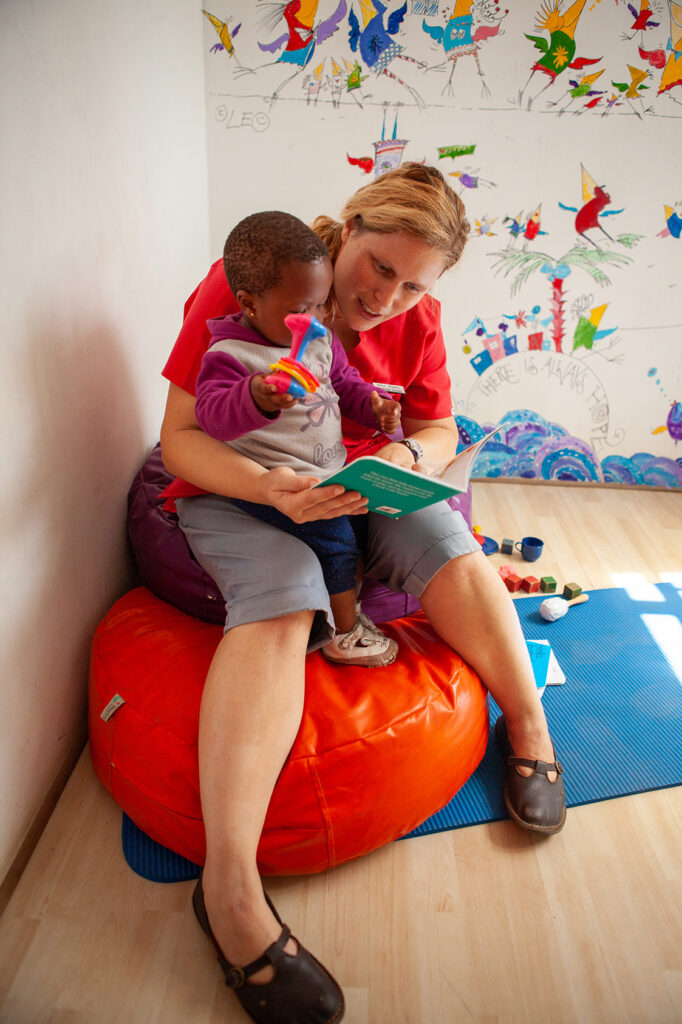 Children living with HIV have been known to have difficulties in most developmental areas including motor skills, language, cognition and socio-emotional development. ARV treatment has meant these children now have an almost certain prospect of surviving beyond childhood and living a long life. However, the risks of developmental delay and encephalopathy remain. In South Africa, often the children have to contend with additional circumstantial factors affecting their health and wellbeing while growing up, despite being on life-saving ART.
Children living with HIV have been known to have difficulties in most developmental areas including motor skills, language, cognition and socio-emotional development. ARV treatment has meant these children now have an almost certain prospect of surviving beyond childhood and living a long life. However, the risks of developmental delay and encephalopathy remain. In South Africa, often the children have to contend with additional circumstantial factors affecting their health and wellbeing while growing up, despite being on life-saving ART.
Because of the critical early developmental challenges children with HIV face the provision of rehabilitation services is a necessity. Occupational therapists have the knowledge and skills to address the developmental, learning, self-care and play skills. The complex combination of problems faced by children with HIV and their caregivers pose great risks to their meaningful engagement in occupations.
At the clinics children are assessed and given appropriate OT intervention to develop and assist their function in everyday activities, foster their development, play, self-care and learning. Component areas that are addressed include gross and fine motor, psychosocial, cognitive and social developmental. When possible, much attention is given to the carers of the children during the sessions as they are in their full-time care and appropriate suggestions are made to ensure input and stimulation in the home environment. If children are needing additional intervention time, with more specialised therapy equipment, additional OT sessions are arranged with the family to take place at the therapy room within the Baygerngarden Centre at The Nex.
The lives of the young people living with HIV is complicated and coming to terms with being HIV+ may be a challenging process for some. In the public health sector, there are very limited resources for assisting these teenagers with the “softer” psycho-social-emotional issues of adolescence and young adulthood. There may be a social worker or mental health nurse or caring-but-too-busy employee who does their best to support the HIV+ youth, but the extent of that support is limited by the workload demands on employees.
For these reasons, HOPE Cape Town have set up adolescent and Youth friendly services at Delft Community Health Clinic and at the Holistic Health Centre at The Nex. The services offered are:
The Delft CHC Youth Clinic for older adolescents and youth (15 to 24 years of age) who are HIV+. Generally, they are newly diagnosed, have co-morbid medical issues or are poorly adherent to treatment. These clinics are held in the afternoon so that the youth can receive more individualised care, and potentially attend clinic after school finishes.
Youth Clubs at The Nex where the teens appreciate the comfortable space, wifi and other facilities. These are psychosocial support clubs for youth living with HIV and include a “Risk of Treatment Failure” support group. Club education topics include HIV disclosure; STIs; What motivates me? Remembering your ARV names; navigating sick leave/sick certificates/taking the day off school or work; will my kids have HIV? How do I have the conversation about HIV with a partner?
HOPE Cape Town provides occupational therapy (OT) services at various clinics, Bayerngarden Centre for Early Childhood Development on The Nex campus and at the Blikkiesdorp Community Outreach Centre.
A large focus of the services is paediatric ARV clinic support and assessment and intervention for the children attending as well as other vulnerable children.
Occupational therapy clinics are currently provided alongside the paediatric ARV clinics at Delft CHC, Delft South Clinic, and TC Newman CDC (in Paarl).
An occupational therapy service is provided at the Blikkiesdorp Playgroup – to assess the children’s development, basic concept knowledge and fine motor skills of those attending. This informs the provision of additional developmental stimulation activity groups to ensure school readiness. Any children needing additional assessment and support are referred to the appropriate services.
Weekly OT intervention is provided to the learners attending the Bayerngarden Grade R. As these learners have developmental delays, medical diagnoses and additional learning needs regular therapy makes sure they are fully supported in their learning environment. Therapy is focussed on helping them master developmental and learning skills to become fully engaged and capable learners.
GOKidz (Guiding Opportunities for Kids) is a play-informed, caregiver-implemented, home-based occupational therapy intervention program. It has been designed by occupational therapists for children living with HIV and is currently being used by HOPE therapists working in the ARV clinics.
GOKidz aims to empower caregivers of HIV positive children to promote the pre- numeracy and pre- literacy skills, development, playfulness and self-care of their children. There is a strong focus on transferring knowledge to caregivers about the ways in which the occupations of play, learning and development progress in their children, providing key guidelines as to how to observe the progression of these occupations and how to use activities and daily routines to promote success in these occupations.
The 10-session program is provided in three different age groups (0-2 years old – Toddler, 3-5 years old – Pre-school, 6-8 years old – Foundation Phase) and covers various topics aligned with the developmental, play, learning, self-care and pre numeracy and pre literacy expectations of each age group.
The caregivers are also given a GO box with toys and stimulation items to allow them to carry out the activities used in the sessions at home.
For more information about GOKidz
HOPE Cape Town provides medical officer consultations and assessment within Tygerberg Hospital outpatient Neurodevelopmental Clinic (NDC) and at The Nex campus.
Children with developmental delays and neurodevelopmental concerns are assessed and followed-up within the NDC. Common diagnoses are autism spectrum disorder (ASD) and cerebral palsy (CP), among others. The newly referred patients are assessed by the specialist paediatrician while the HOPE doctors see returning patients and ensure that they are accessing the right care (e.g. OT, physio, speech therapy) and are placed in the correct school environment.
Dr Ana Houston has been trained in the Autism Diagnostic Observation Schedule (ADOS-2) – an autism spectrum disorder diagnostic tool. Dr Houston is the default ADOS assessor at Tygerberg Hospital and also receives some referrals from local clinics.
Dr Houston and Robyn Meissner (OT) are additionally trained and assist in the provision of the Griffiths III assessment to those children needing it – an assessment measuring a child’s development across different developmental areas. assessment services to the Neurodevelopmental clinic.
At the Nex neurodevelopmental services include parental support groups, ESSENCE-Q screening for local ECDs; developmental screenings and ADOS assessments for flagged children.
There is an increasing need for counselling services as young people struggle with so many psycho-social issues. At the Holistic Health Centre at The Nex-Indawo Yethu, mental health services are currently being provided through collaboration with University of Western Cape master’s in psychology programme, a Stellenbosch university research study and also by the CHW’s and support groups hosted at the health centre.
HOPE Cape Town Psychologist Abeedah Hendricks consults clients under age 18, with their parents as needed. This allows sufficient time between one-on-one therapy and psychometric assessments. While they are on the waiting list to see the psychologist, they speak with the HCHWs who possess excellent listening and counselling skills.
The Holistic Health Centre, La Maison de Christoph, aims to bring a relevant model of holistic, preventative care services and especially focusses on prevention, lifestyle, and mental health, whilst continuing on the firm foundation of work already done with HIV-infected and -affected families in the form of screening, adolescent clubs, and other support groups.

Under an official agreement with the Western Cape Government and the City of Cape Town, it cooperates with the local township clinics and is equipped like a normal township clinic and run by a nurse with the support of HOPE Community health workers.
 A registered nurse practitioner manages patient consultations and services and is supported by community health workers in offering services that include women’s health screenings, family planning, general health checks/screenings, TB and HIV testing and counselling.
A registered nurse practitioner manages patient consultations and services and is supported by community health workers in offering services that include women’s health screenings, family planning, general health checks/screenings, TB and HIV testing and counselling.
Caregiver-child clinics promote responsive caregiving and provide caregiver support and care. Our aim is to also provide support services for vulnerable groups, like adolescent mothers and children with disabilities. Support groups are aimed to create a safe space for growth and wellness – a place for wholeness to flourish. Psychological services are also available.
A baby immunization clinic service is offered in collaboration with the local day hospital as an outreach.
Healthy living and prevention of chronic conditions support group was started with the aim to promote healthy lifestyle and prevent clients from acquiring chronic diseases. To this end the clients are checked for high Blood Pressure and Glucose levels, high Body Mass Index, unhealthy eating habits, smoking and lack of regular exercise. Through a partnership with the Western Cape Health Department, the holistic health centre is also a designated chronic medications pick up point.
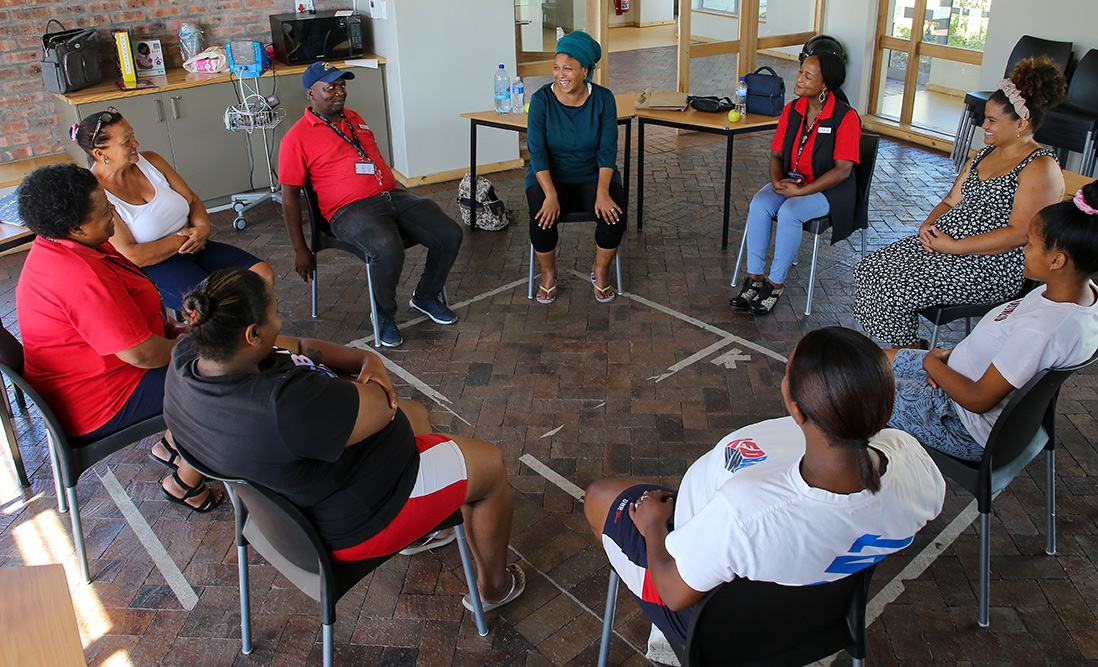
The health centre is also the venue for so-called “clubs“. They are meetings of people with the same clinical diagnosis who meet regularly. Information and discussions on the clinical picture, a check-up and the distribution of medication are components of such a meeting. In the HIV area alone, 4 such youth groups are currently meeting on campus.
Email: info@hopecapetown.org
Tel: +27 21 001 2175
More details
HOPE Cape Town Trust © HOPE Cape Town 2001 – 2025 | Powered by Mindfield
Public Benefit Organisation (SA) No 93/00/24/843 Non Profit Organisation (SA) No 053-417NPO